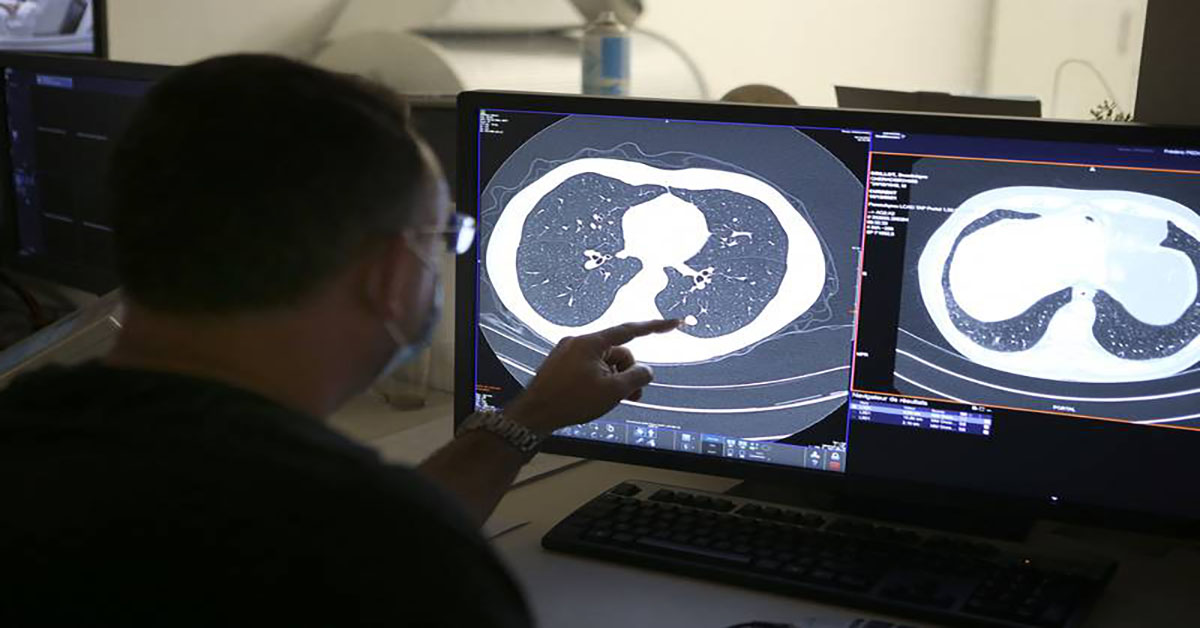Nick Webster | The National News Filed on 2022-04-04 | Last updated on 2022-04-04 03:18:25
A project to improve access to cancer data from the Arab world has ended with the publication of what the authors say is the first book dedicated to the subject.
Cancer In The Arab World took a team of 30 specialists five years to complete and it includes a chapter dedicated to each of 22 Arab nations.
Published by Springer, it examines challenges to palliative care and has a chapter on how cancer treatment can be found in regions where there is conflict.
The book was the idea of Dr Humaid Al Shamsi, director of oncology at Burjeel Medical City and president of the Emirates Oncology Society, who invited colleagues and peers from across the Middle East to contribute.
The book is an open source of information for policymakers, clinicians, patients and their families to address the shortfall in data and research specific to the Arab world.
“We are dealing with a considerably different cancer patient population in this region,” Dr Al Shamsi said.
“This is in terms of age of onset, stage at presentation, awareness and acceptance of disease and treatment, and most importantly, eagerness to seek treatment abroad rather than from within the country.
“I have dedicated my clinical and academic careers to understanding the reasons behind such differences, especially those that are modifiable or targetable with medical and non-medical interventions.”
While progress has recently been made in exploring genetic variations in the Arab population in some cancers, a major gap remains in data on epidemiology and clinical outcomes.
Cancer In The Arab World is a groundbreaking and comprehensive book about cancer care in the Arab world and is aimed at addressing that shortfall in each country.
“It highlights the challenges we face, and offers a road map to move forward, so it will be of interest to regulators and all those involved in cancer care,” Dr Al Shamsi said.
Each chapter provides vital information on cancer statistics and risk factors, available clinical care pathways and infrastructure.
The book also highlights cancer prevention programmes in each country, as well as specific challenges and insights into how to achieve optimal care.
Putting it all together was no easy task.
“There were a few major challenges when we initiated this work, like there were multiple countries for which we had difficulty finding authors,” said Faryal Iqbal, a research associate at Burjeel Medical City.
“Some countries had political and conflict issues, and some had limited access to cancer-related databases in their countries.
“Despite all the challenges, we managed to produce a very constructive initiative for the Arab region’s oncology healthcare system.”
Topics relevant to the Arab world are also discussed, including medical tourism for cancer treatment and cancer care during war and conflict.
UAE cancer rates expected to double
Cancer remains a leading cause of death worldwide, while the Middle East has one of the fastest-growing global rates of the disease.
The incidence of cancer in the UAE, for example, is expected to double in the next two decades, according to the Union for International Cancer Control.
The book project began in March 2017 and the finished work was published this month. It is available free online or for about $40 (Dh147) for a hard copy.
It is currently only in English, but contributors hope to have it translated into Arabic.
Other special chapters include cancer research in the Arab world, radiation therapy and paediatric oncology.
While incidence rates in most Arab countries is lower than the West, few in the region have national screening programmes that could help with early detection and better outcomes.
In many countries, patients are seeking medical help only during advanced stages. The book outlines many reasons for this, from lack of knowledge to embarrassment, misconceptions and cultural norms.
Even in countries that have made significant progress in cancer care, there is lack of palliative care, the book said, with an increased need a common highlight in many countries.
Dr Ibrahim Abu-Gheida, head of radiation oncology at Burjeel Medical City, said compiling the book involved weekly meetings to research content.
“We had brainstorming sessions and follow-up calls with the authors over the course of 18 months to decide on its content and how best to publish,” he said.
“Palliative care is an established practice in oncology worldwide, but in Arab counties more work is required so that it is integrated into the early stages of cancer diagnosis.
“Studies have shown if good palliative care is integrated into treatment early, particularly in stage four of lung cancer, there are better patient outcomes.”
Read Full Story: The National News


